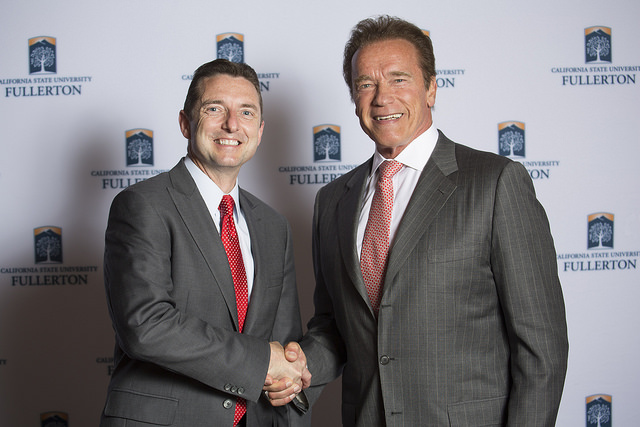Insurance InformationInstitute President Robert P. Hartwig remembers being inthe I.I.I. offices on William Street in New York City on Sept. 11,2001. “We were on the 24th floor at the time and I watched thetowers fall with my own eyes,” he says.
|He recalls assuring a reporter from The Wall StreetJournal that the insurance industry would respond to theevents in the form of claims paid, and would not avoid paymentsbased on terrorism or war exclusions.
|“It was kind of a gutsy call on my part because there were somerumors of terrorism or war exclusions applying here,” Hartwigsays, adding that his assessment turned out to be the rightone.
|While there was some prolonged litigation about whether theattacks on the Twin Towers constituted one or two events, Hartwignotes the industry responded quickly to tens of thousands of mostlybusiness claims, and there was a widespread sense that the industryresponded “fairly and expeditiously” to the event.
|“It was a sad moment in American history,” says Hartwig, “but aproud moment for the insurance industry.”
Continue reading…

The Darla Moore School of Business at the Univ. of SouthCarolina (Columbia, S.C.) will be Hartwig's new professional home,beginning with the fall semester. (Photo: University of SouthCarolina website)
|And that has been the role Hartwig has played at I.I.I.:highlighting the insurance industry’s critical function of helpingindividuals, businesses, and even nations recover aftercatastrophes both big and small, and passionately defending theindustry’s response to those events.
|Now, as Hartwig prepares to leave after 18 years to pursue acareer in academia at the University of SouthCarolina, “I knew we played important role,” he says of I.I.I.,“but I think even I underestimated how important a role we do play.I’m proud of the organization and the industry we serve.”
|Related: Insurance Information Institute names SeanKevelighan president and CEO
|The industry, he explains, has to deal at times with a negativemedia or regulatory environment, and it is I.I.I.’s job to correctthe record when it comes to the role insurance plays. Data andfacts matter, says Hartwig. The “media formula,” he explains,involves finding a victim after, say, a natural disaster andcharacterizing that victim as the general case. “The antidote tothat is countering with the data,” he says. So if a narrativeemerges after an event about insurers not paying claims, “I cancome back and say, within six months, 98% of claims were settledand we paid this amount of dollars.”
|As an example, Hartwig recalls a recent trip he took to Georgia,where a spike in auto claim frequency has caused insurers to filefor large rate increases, generating negative press. “I went thereloaded with facts and stats,” Hartwig says. “One was, in the pastyear, 22% more people have died on Georgia roads in highwayaccidents. Why did it go up 22% in Georgia?
|“The story isn’t about insurers raising rates,” he says. It’sabout people dying on Georgia roads unnecessarily. Why is it thatGeorgia leads the country in number of deaths per road?” He pointsto the state raising its speed limit up to 70 mph in suburban areasand no law against texting and driving as contributing factors.
Continue reading…

The landscape is changing for insurers, Hartwig says, but itmust continue to show its value. (Photo: NUPC)
Changing times
I.I.I.’s leadership change comes amid a changing landscape forinsurers. For one, the industry has caught attention from federallegislators and regulators in a way it hasn’t seen before. “When Istarted, there was really no one in Washington thinking aboutinsurance,” Hartwig says.
Events such as Sept. 11 and the push for the Terrorism Risk Insurance Act, the financialcrisis and the formation of the Federal Insurance Office havechanged that, and as federal scrutiny increases, Hartwig says theindustry must continue to make the case, that it is different frombanking and should be recognized as such when it comes toregulation and legislation.
|Apart from increased focus from Washington, Hartwig sees anevolving economy that presents challenges and opportunities beyondthe horizon for insurers. He talks about the currency of data, andhow insurers may be cut out of the loop in the future. The industrycurrently adds value, he explains, by collecting, warehousing,analyzing and archiving a wealth of data.
|Related: Designing a UBI program for the ‘average Joe’— andanyone else
|“In the future,” Hartwig says, “data useful for underwritersmight be collected elsewhere.” Cars with black boxes, for example,collect a lot of raw information. “Could an auto manufacturer takethat information and contract with someone else like Google toanalyze it, and then in effect develop insurance products on itsown? Do they want to do that?
|“I’m not sure,” he continues, “but data has value and we are notthe sole proprietors of that data anymore.”
|“Twenty years down the road,” says Hartwig, “who insurers areteamed up with in order to collect information and evaluate,measure and price risk may surprise you. But that’s how the worldis going to evolve, and it’s exciting to think about that.”
Continue reading…
You know your insurance career has peaked when you get yourpicture taken with the Governator. So says Insurance InformationInstitute President Robert Hartwig (he uses the more formal “formergovernor” to describe Arnold Schwarzenegger) as he reflects uponhis 25-year career in the industry, including 18 years at I.I.I.(Photo: I.I.I.)
|A new challenge: Recruiting young talent
Regarding his upcoming transition, Hartwig says it’s a move healways knew he’d make. Academia is the path he believed he was onwhen he started his Ph.D., until circumstances took him down adifferent road — first as a statistician for the government, andthen to the insurance industry in roles at the National Council onCompensation Insurance, Swiss Re, NCCI again, and finally toI.I.I.
Now, armed with decades of insurance industry experience,Hartwig will finally find his way to academia — in a role that willalso allow him to continue helping the industry he isdeparting.
|“There are going to be upwards of 400,000 retirements in [theinsurance] industry over the next four or five years, and you haveto replace them,” says Hartwig, stating a problem that anyone whoworks in the insurance industry is all too familiar with.
|In his new role as an insurance and risk management educator atthe University of South Carolina’s Darla Moore School ofBusiness, Hartwig says, “One of the things I’ll be doing ismaking people aware at a younger age what a great career choiceinsurance can be.”
|Hartwig wants the school to produce a generation of graduatesthat the insurance industry will be excited to hire. He wants tosee insurers recruiting his students for internships and careersafterward, and he is looking forward to “proud moments whenstudents down the road say, ‘Dr. Hartwig, when I sat in your Introto Risk Management and Insurance class, I only took it because Ihad to, and then when I took your other classes, I knew this wasthe career for me.’”
|Related: Here are the top 10 schools for insurance and riskmanagement
|Save
|Save
|Save
|Save
|Save
|Save
|Save
|Save
|Save
|Save
|Save
|Save
|Save
|Save
Want to continue reading?
Become a Free PropertyCasualty360 Digital Reader
Your access to unlimited PropertyCasualty360 content isn’t changing.
Once you are an ALM digital member, you’ll receive:
- All PropertyCasualty360.com news coverage, best practices, and in-depth analysis.
- Educational webcasts, resources from industry leaders, and informative newsletters.
- Other award-winning websites including BenefitsPRO.com and ThinkAdvisor.com.
Already have an account? Sign In
© 2024 ALM Global, LLC, All Rights Reserved. Request academic re-use from www.copyright.com. All other uses, submit a request to [email protected]. For more information visit Asset & Logo Licensing.









